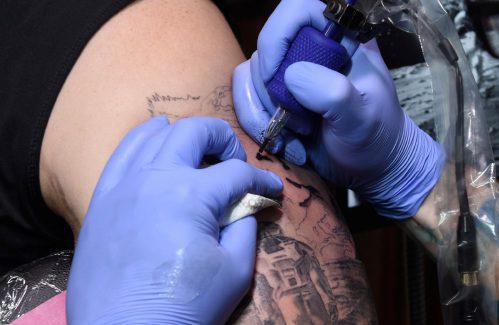To stay current and accommodate the evolving landscape of tattoo and body art, Amherst’s Board of Health is considering revisions to its regulations, first adopted in 2004 and last amended over a decade ago. The proposed changes aim to provide increased flexibility for guest artists and apprentices while ensuring the regulations remain relevant in the contemporary tattoo industry.
Amherst’s Board of Health recently conducted a public hearing to discuss potential revisions to tattoo and body art regulations, marking the first significant update since 2012. These minor yet crucial changes reflect the board’s commitment to periodically review and modernize health regulations to meet current standards and practices. The rules encompass body piercing, tattooing, branding, and scarification, and they are being scrutinized to ensure they align with contemporary industry norms.
Public Health Director Kiko Malin emphasized that the board’s proactive approach drives the proposed changes to maintain relevancy. The modifications aim to introduce greater flexibility for guest artists and apprentices, responding to inquiries from local body art businesses. The proposed alterations include allowing a broader range of piercing sites to align with statewide practices, introducing a temporary license for qualified guest artists to operate in Amherst for up to 30 days, and establishing apprentice licenses with defined prerequisites and training requirements.
Malin highlighted the need for updated standards, particularly in autoclave use, signaling a commitment to the highest safety measures in the tattoo and body art industry.
Amherst adopted tattoo and body art regulations on November 18, 2004, with subsequent amendments in July 2006, May 2007, and August 201; the proposed changes signal a concerted effort to ensure the regulations evolve, promoting a vibrant and inclusive environment for the local tattoo community.
Industry stakeholders, including Stephen Lambert, owner of Wanderlust Tattoo, raised concerns during the public hearing. Lambert expressed reservations about specific prohibitions, such as tongue splitting, three-dimensional body art, and cartilage modifications, all legally practiced in other cities and towns. Lambert underscored the potential hindrance posed by such prohibitions, limiting the shop’s ability to host specialized guest piercers and impacting the recruitment of new personnel.
Lambert was particularly concerned about requiring a divider or partition to separate multiple body art stations. Some tattoo and body art establishments operate with an open floor plan, challenging compliance. Lambert advocated for setting a precedent that facilitates easier entry for businesses and professionals into Amherst, fostering a conducive environment for growth and innovation.
As the Board of Health considers these revisions, the focus remains on striking a balance between regulatory standards and the dynamic nature of the tattoo industry, ensuring Amherst remains a welcoming hub for tattoo enthusiasts, artists, and businesses alike.
